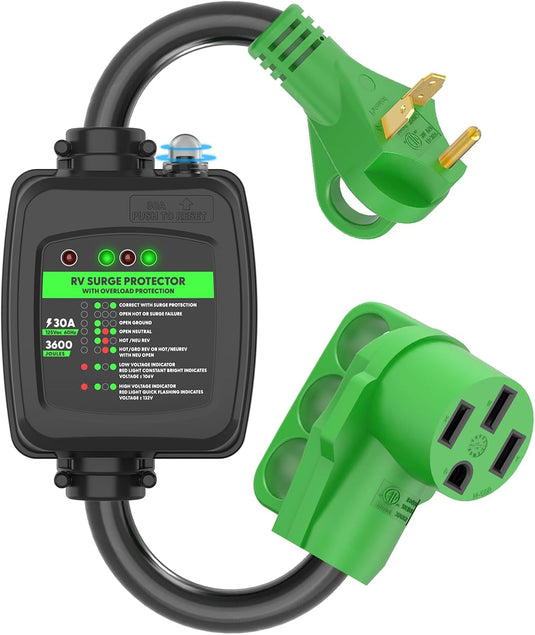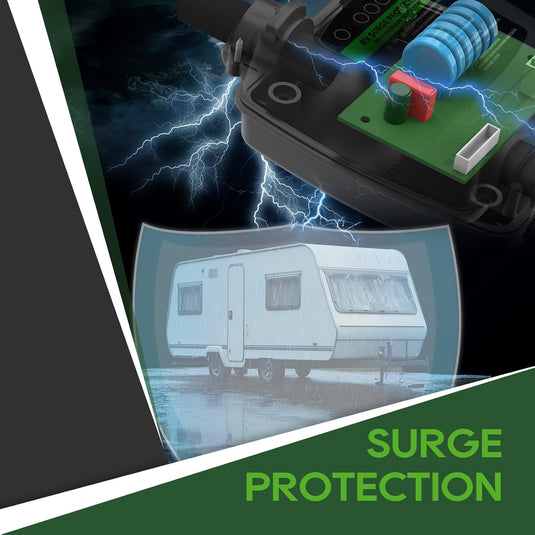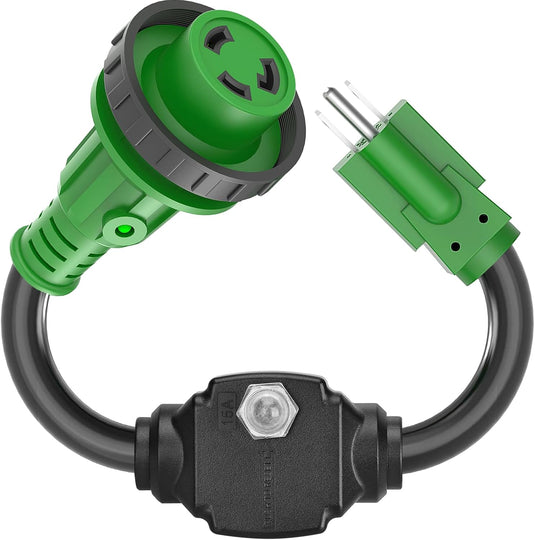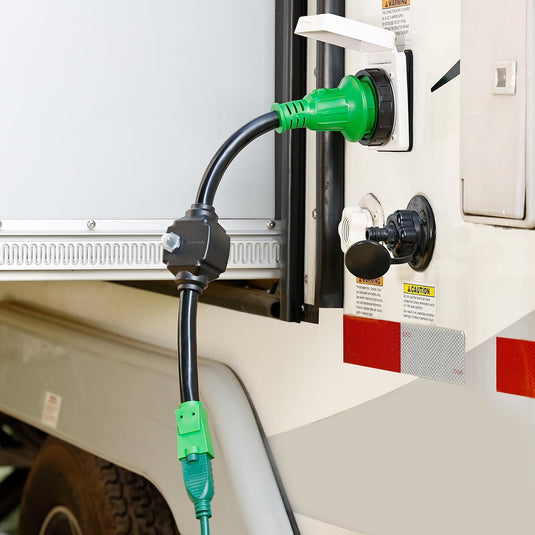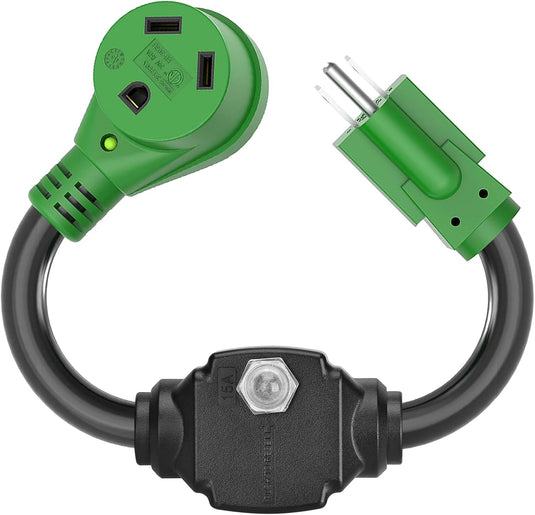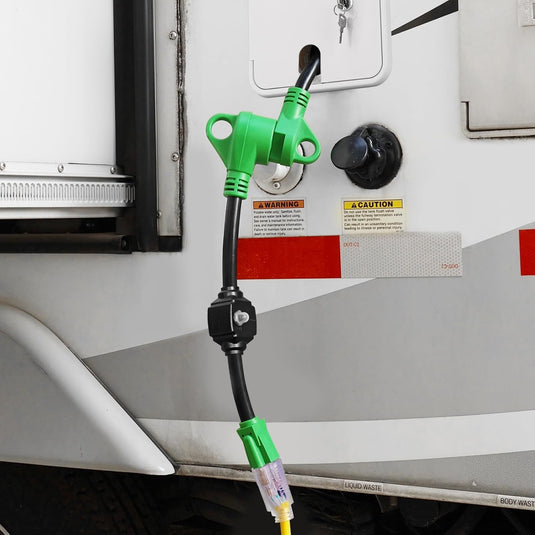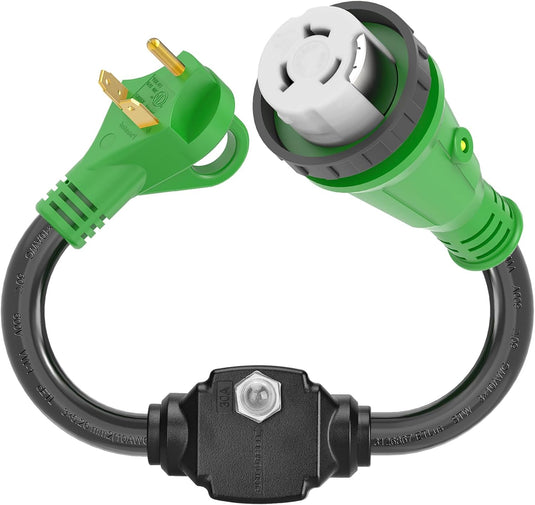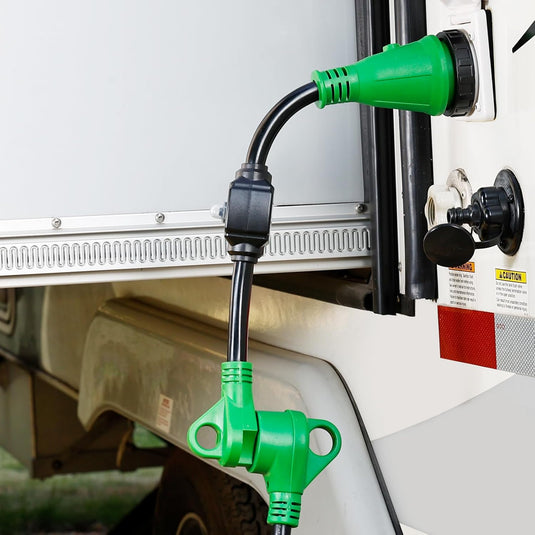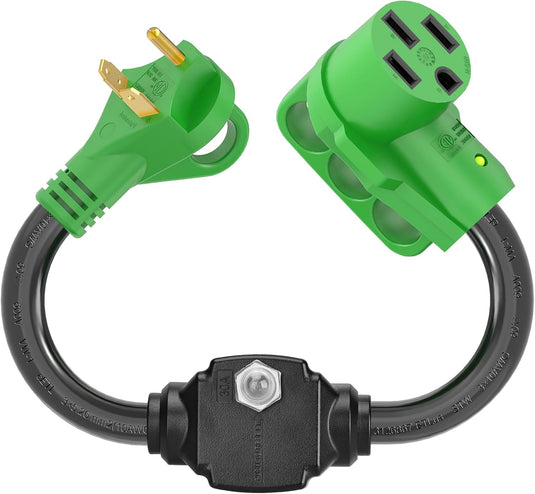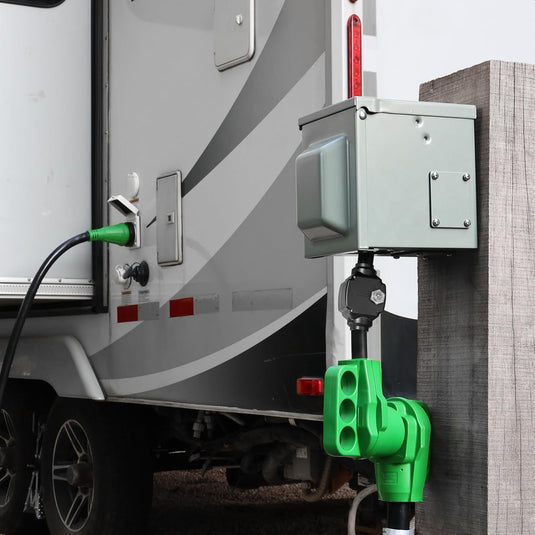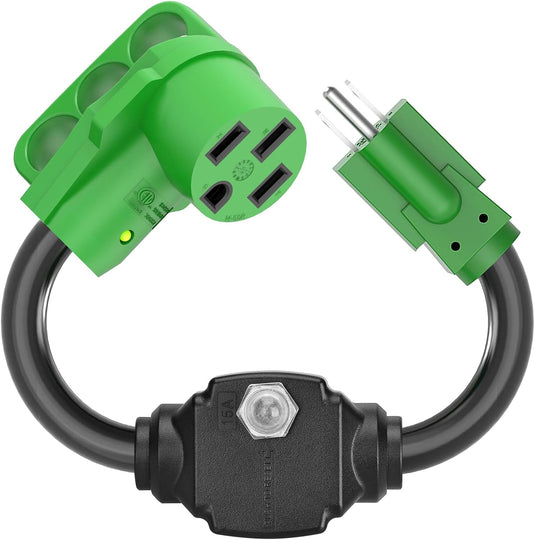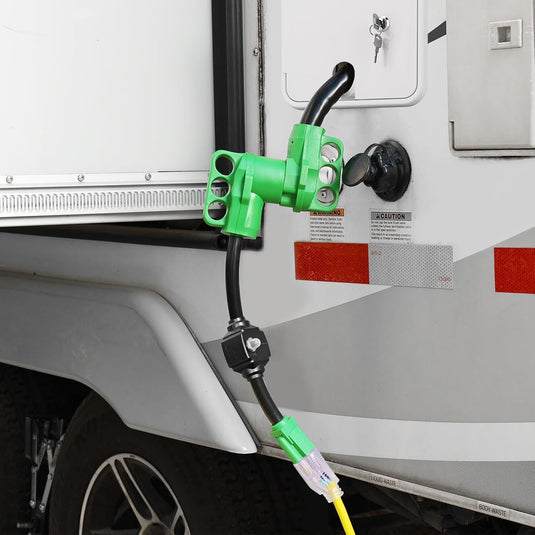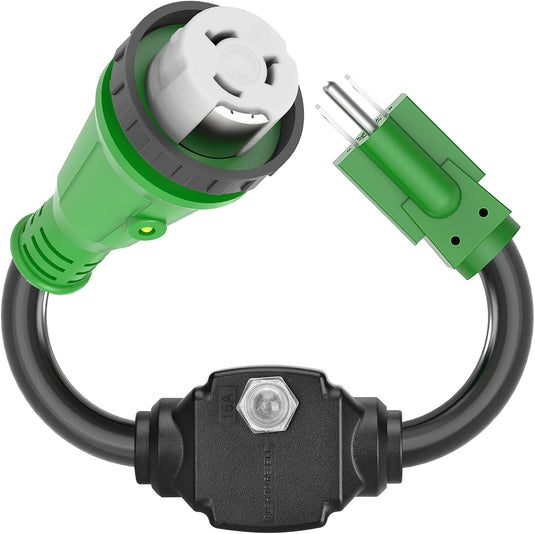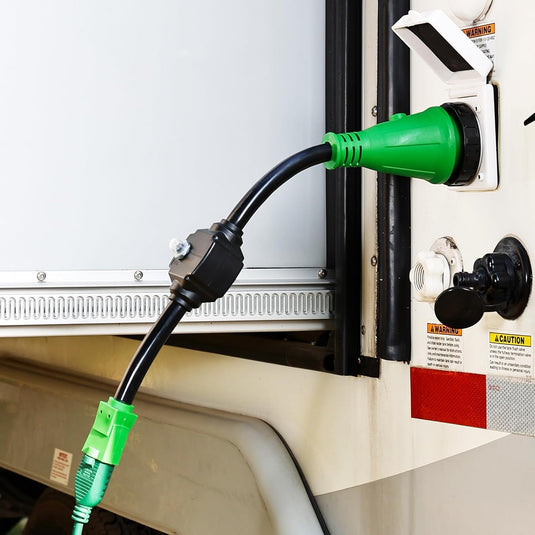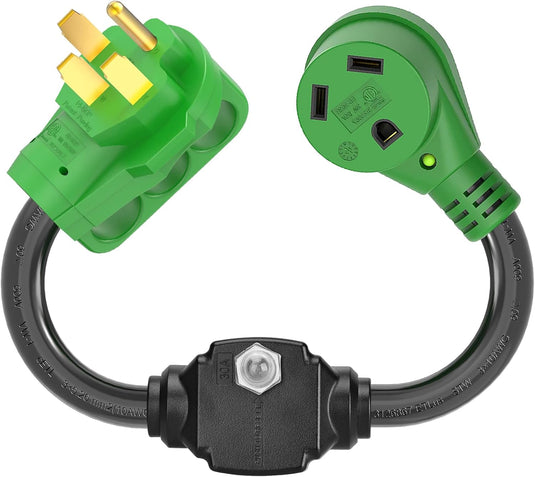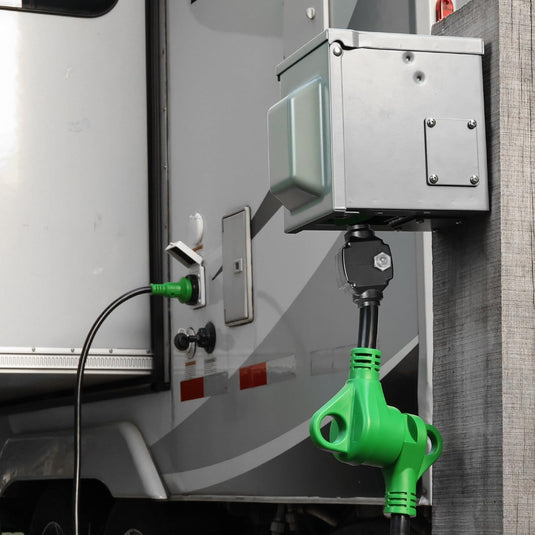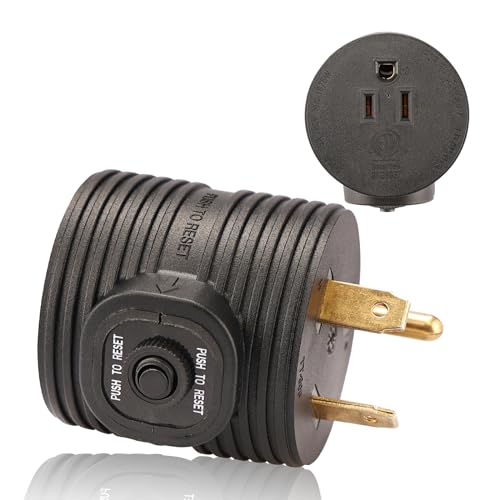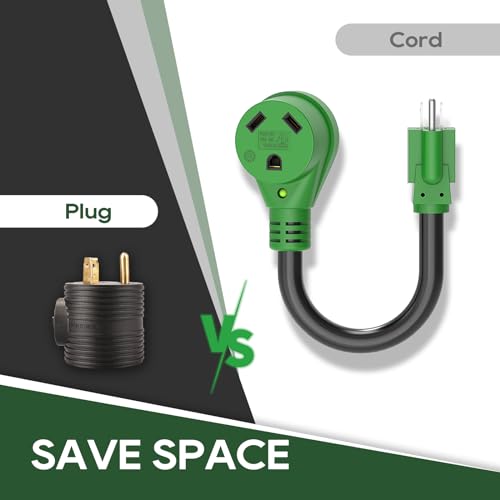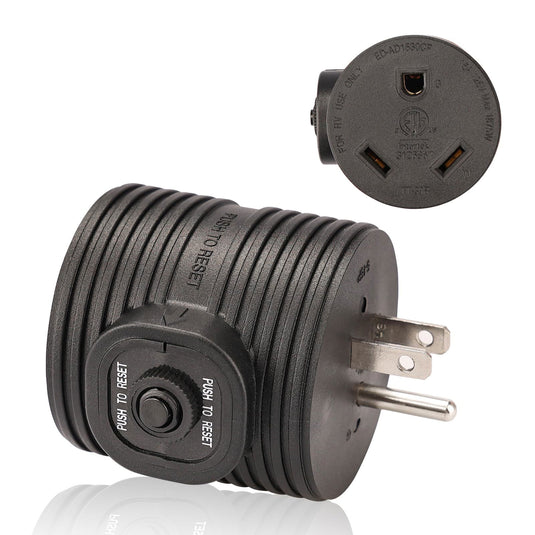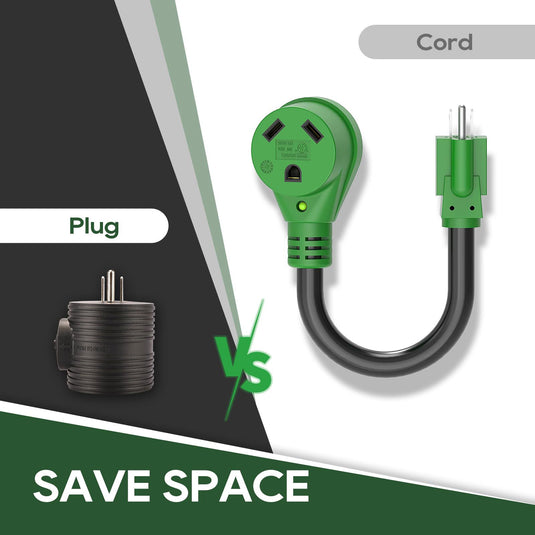It's 95°F at the campground, your AC is struggling, and suddenly—click—everything goes dark. If your RV breaker trips repeatedly during summer travels, you're facing one of three electrical threats:
- Overloads (using >80% of your 30A/50A system's capacity)
- Power surges (from storms or faulty campground pedestals)
- Adapter mismatches (using wrong RV plug adapters)

This Is What Happens When You Ignore RV Electrical Safety.
Below, we’ll diagnose your specific issue and match it with the right RV surge protector or adapter—with clear technical specs to inform your purchase.
1. The RV Electrical Survival Trio: Which Protection Do You Need?
A. The Overload Adapter
Best for: RVers who occasionally exceed their amp rating.
Product type: RV plug adapter with overload protection
▸ How it works:
- Built-in circuit breaker trips at 30A/50A (vs. your RV's main breaker at 35A/55A)
- Reset button allows quick recovery after unplugging appliances
Real user reviews:
"Getting the RV ready for the season and running everything to test, the air conditioning was too much and power shut off. Checking this the internal breaker had popped, and all it took was pushing down in the bubble to reset and everything was running again. Fantastic. No more melted extension cords."
B. The Surge Slayer
Best for: Storm-prone areas or RVs with lithium batteries.
Product type: 50 amp RV surge protector (4200 joules)
▸ Critical specs:
- 2100 joules (30A) / 4200 joules (50A) absorption capacity
- Responds in <1 nanosecond—faster than lightning strikes
- ETL-certified for 120V/240V systems
Technical note:
• 1 joule = 1 watt per second → 4200 joules can handle multiple small surges or one massive spike
C. The Hybrid Hero
Best for: Full protection + plug conversion flexibility.
Product type: RV power adapter with surge+overload protection
▸ Dual functionality:
- Converts between 30A and 50A systems (no need for separate camper plug adapter)
- Blocks surges up to 3,600J while preventing overloads
ETL-Certified • 3600J Surge Protection • Fits All RV Plug Types
2. Amp Rating Decoded: 30A vs. 50A Solutions
| Your RV System | Max Wattage | Must-Have Protection | Adapter Needs |
|---|---|---|---|
| 30 amp | 3,600W | 30 amp RV surge protector | Carry 30A to 50A adapter for parks |
| 50 amp | 12,000W | 50 amp RV surge protector | Use 50A to 30A adapter cautiously |
Pro Tip:
• Never use a 30 amp RV plug adapter on a 50A system without voltage monitoring—this risks melting connectors.
3. Product Showdown: Which Should You Buy?

For Budget-Conscious Owners
▸ Pick: Basic RV cord adapter with overload protection
▸ Cost: 20
▸ Best for: New RVers at commercial campgrounds
For All-Season Travelers
▸ Pick: RV surge protector 30 amp/50 amp (2100-4200 joules)
▸ Cost: 40
▸ Best for: Coastal routes or mountain boondocking
The Smart Middle Ground (Our Top Value Pick)
▸ Pick: RV Adapter with Surge & Overload Protection (3600J)
▸ Cost: 60
▸ Why It Stands Out:
- Dual defense: 3600-joule surge protection + 30A/50A overload cutoff
- Versatile: Works as both a 30 amp RV plug adapter and 50 amp to 30 amp adapter
For Tech-Advanced RVs
▸ Pick: Smart RV power adapter with Bluetooth monitoring
▸ Cost: $300+
▸ Best for: Lithium battery systems or luxury coaches
4. Installation Made Simple
All products featured:
✓ Plug-and-play (no wiring required)
✓ ETL/UL certified (meets U.S. safety standards)
✓ Weatherproof (-40°F to 140°F operational range)
Step-by-step:
- Plug your RV surge protector into the campground pedestal
- Connect your 30 amp RV plug adapter (if needed)
- Attach the RV power cord
- Check LED status lights
Green light indicates proper surge protection with no faults, while red light signals protection failure due to issues like power faults, overheating, or low voltage, and rapid red flashing means surge counter reset.
Final Verdict: Don’t Gamble With Your RV’s Electrical System
A
300+)
• 1 inverter replacement ($1,200+)
• 1 ruined vacation (priceless)
Choose your protection level:
➔ Basic: Overload-protected trailer plug adapter
➔ Recommended: RV Adapter Cord with Surge & Overload Protection
➔ Maximum: 50 amp RV surge protector with 4200J
FAQ
Q: Can I use a household surge protector for my RV?
A: No—they lack 30A/50A RV plug adapter compatibility and weatherproofing.
Q: How often should I replace my RV surge protector?
A: Every 3-5 years, or immediately after a major surge event.
Q: Do I need a special adapter for 50 amp to 30 amp conversion?
A: Yes! Use only ETL-listed 50A to 30A adapters with built-in load monitoring.


